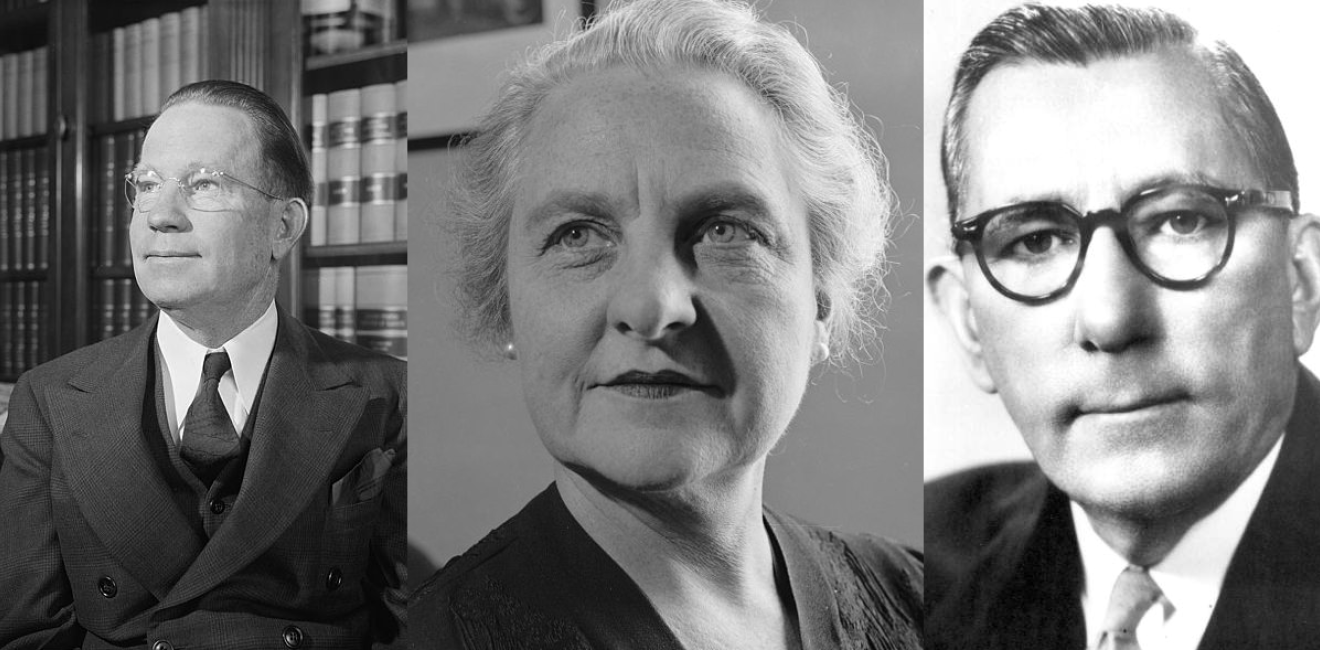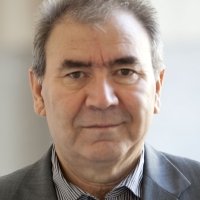The State Archive of the Republic of Azerbaijan contains a large number of documents of the Narkomindel, or the People’s Commissariat for Foreign Affairs of the Azerbaijan SSR. Although this source has not been utilized very often, the formerly classified documents of the Narkomindel are valuable for studying the early stages of the Cold War.
In the spring of 1944, the People’s Commissariat of the Soviet Republics (including the Azerbaijan SSR) was restored, having been shut down after the formation of the USSR at the end of 1922. On 29 December 1944, the Narkomindel of the USSR sent numerous documents to Baku in order to familiarize the Azerbaijan’s People’s Commissariat for Foreign Affairs with the political situation in the Near and Middle East. These documents include correspondences from the Soviet ambassadors to Iran, Turkey, Afghanistan, Egypt, and other Arab countries; information on individual politicians and government officials in the region; copies of reference reports prepared in Moscow in the 1930s and 1940s on the countries mentioned above; reviews of Iranian and Turkish media compiled by Soviet embassies; and other related documents.
The Narkomindel materials also include reports and correspondence about American delegations to Soviet Azerbaijan during the early Cold War, as representatives of American public organizations and Congressional delegations began coming to Baku immediately after the end of military operations in Europe and Asia.
The Narkomindel records about these visits suggest that the US government was intent on peacefully cooperating with Moscow and the Soviet Socialist Republics in the post-war era. At the same time, that so many Americans visited Azerbaijan in August and September 1945 points to continuing American interest in Baku’s oil after World War II.
***
On 4 August 1945, the Vice-President of the National Council of American-Soviet Friendship, Edwin Smith, paid a two-day visit to Baku. According to the archive of the Narkomindel, he was interested in the history of Azerbaijan, its territory and population, its borders (past and present), and the principles on which Azerbaijan was divided into administrative units, among other topics.
On the day of his arrival, Smith visited the newly established Academy of Sciences of the Azerbaijan SSR and the People’s Commissariat of Education. He spoke about developing cultural ties between the peoples of the USSR and the USA:
“We are aware of the Armenian and Georgian Soviet Republics, but we can say that we have almost nothing to say about Azerbaijan, and our people, who ask questions about the life and development of the peoples of the Soviet Union, know nothing about your Republic, except for Baku, famous for its oil both in the Caucasus and around the world.”[1]
Following a trip to various cities in the Soviet Union, Smith gave an interview to a TASS correspondent, stating that:
“the purpose of my trip was to establish cultural ties between the United States and the Soviet Union. I wanted to visit Baku as it is the capital of one of the Soviet republics. Until now, in my mind, Baku was a large oil center. I did not think it was such a modern and cultural city.””[2]
The People’s Commissar of Foreign Affairs of Azerbaijan, Mahmud Aliyev, prepared an extensive summary for the People’s Commissariat of Foreign Affairs of the USSR about the visit, titled: “On the Stay of Edwin Smith, the Vice-President and Director of the National Council of American-Soviet Friendship in Baku.“[3]
***
On 9 September 1945, Congressmen Francis Bolton, a Republican from Ohio, and Karl Mundt, a Republican from South Dakota, arrived in Baku.
At the airport, Congressmen Bolton and Mundt were met by the chairman of the Baku City Executive Committee and the head of the Protocol Department of the Azeri Narkomindel. They toured the city the following day, admiring the sea from Upland Park. According to summaries of the visit, the American representatives were interested in just about everything connected to oil: when the Baku oil industry began; the evolution of oil production methods; the expansion of the oil industry during the First and Second World Wars; what percentage of existing wells were drilled during the years of Soviet rule; etc.
Bolton and Mundt also learned about Azerbaijan’s agricultural situation (including its cotton, grain, and fruit outputs), Azeri culture, and the work of the Narkomindel’. After two days of getting acquainted with Baku, the Congressmen left for Tehran.
***
On 15 September 1945, an even larger Congressional delegation arrived in Baku from Moscow. This group included William Colmer (a Democrat from Mississippi), Clifford Case (a Republican from New Jersey), Orville Zimmerman (a Democrat from Missouri), Jesse Wolcott (a Republican from Michigan), Jay Le Fevre (a Republican from New York), Sidney Simpson (a Republican from Illinois), Charles Wolverton (a Republican from New Jersey), and George Evan Howell (a Republican from Illinois). They were accompanied on the trip by Herbert Fels, director of the post-war economic policy and planning Committee, Professor William Elliott of Harvard University, Deputy Chairman of the Bureau of war production, James Ferris, and several Foreign Service Officers and military personnel.
On 16 September, the Baku City Executive Committee hosted a reception in honor of the guests, and the head of the delegation, William Colmer, made the following statement:
“Never before have the thoughts and aspirations of the peoples of the world been focused on the three great allied states...The great significance of this moment lies in the fact that during the war, a strong foundation was laid for the cooperation between the peoples of the USSR and the United States. This fact applies on peaceful days too. And if this brotherhood led the enemy to collapse, then its further continuation will become a guarantee of freedom and heartfelt friendship, confirming that the victims were not in vain.”
After Colmer, Jay Le Fevre took the floor to offer praise for Stalin:
“We bow our heads to Generalissimo Stalin, with whom we had a cordial conversation two days ago. We do so because if the Red Army led by him had not cleared the way to victory over our common enemy, fascism, the peoples of America and Europe would have suffered many misfortunes.”[4]
Professor Elliott joined them and added:
“Before leaving Moscow, we were received by the most brilliant man of our time, his name is Stalin. We were immensely charmed by this meeting and extremely grateful to the Soviet government and Stalin for their hospitality. Generalissimo Stalin has shown us the hospitality that inspires our belief in the strengthening of US-Soviet relations. Our random meetings with Soviet people and this meeting that took place today allow us to feel more deeply the heartfulness of the American-Soviet friendship.”
Congressman Jesse Wolcott, in his speech, also noted:
“A new era must create a new world. This slogan, for which the great powers fought, must become a reality. Defeating the forces of evil was a universal task. This was possible only thanks to the joint activities and mutual trust of the Soviet Union, the United States, and the Great Britain. This mutual trust is the foundation for building the modern world.”
The speakers asked Kozlov, chairman of the Baku City Executive Committee and Orujev, the head of the Protocol Department of Narkomindel, to convey to the head of the Republic their heartfelt gratitude for the hospitality provided. During informal conversations, the guests reportedly asked questions about the Baku oil industry, agriculture, and the progress of Azerbaijan’s culture.[5] After a sightseeing tour of Baku, on 17 September the delegation boarded a plane bound for Tehran.
***
Senator Claude Pepper from Florida visited Baku on his way from Moscow to the US on 16-17 September. He toured a number of Baku’s historic and cultural sites, and after a busy few days, he began speaking fondly of the city. He announced that:
“The surroundings of Baku reminded me of California. I am very sorry that there is no time for a closer acquaintance with the capital of Azerbaijan and the lives of its inhabitants, but even a brief introduction allows me to talk about cultural progress.”
That evening, Pepper and his entourage watched the movie “Arshin Mal Alan” (“The Cloth Peddler”) at a cinema named after Nizami. After the film viewing, he offered some praise for the Soviet Union. “We see a huge step towards civilization. The Soviet government has done a lot for the peoples in the outskirts of the Tsarist Empire.”
On 17 September, Senator Pepper left for the United States, and Orujev, the chief of Protocol who accompanied him, made a detailed report to Mahmud Aliyev.[6]
***
Although the Narkomindel records about these visits suggest that American policymakers and members of the public desired cooperation with the Soviet Union, we know, also on the basis of archival documents at the Azerbaijani State Archives, that the Soviet government had already launched an "experiment" in Iranian Azerbaijan at the same time as visits by the US Congressmen.
In early September 1945, Mir Jafar Bagirov, the head of Soviet Azerbaijan, received instructions from Moscow to accelerate the operation to separate South Azerbaijan from Iran. On 3 September, 1945, the establishment of the Democratic Party of the Iranian Azerbaijan (ADP) was announced. From that day on, Bagirov regularly sent daily ciphers to Stalin about the development of the situation in Iran, especially in Iranian Azerbaijan.
These ciphers offer some of the earliest evidence of Soviet Cold War doctrine. Cooperation between the Allies would be difficult to sustain following the Iran crisis of 1946, even with the influx of American visitors to Baku.
[1] Mahmud Aliyev. Report on the stay in Baku of Vice-President and Director of the National Council of American-Soviet friendship Edwin Smith, August 7, 1945, State Archive of the Republic of Azerbaijan (hereafter referred to as SARA), f. 28, r. 4c, v. 16, p. 48.
[2] Interview correspondent of Telegraph Agency of the Soviet Union with Edwin Smith, August 1945, SARA, f. 28, r. 4c, v. 16, pp. 50-51
[3] Mahmud Aliyev. Report on the stay in Baku of Vice-President and Director of the National Council of American-Soviet friendship Edwin Smith, August 7, 1945, SARA, f. 28, r. 4c, v. 16, pp. 47-52.
[4] Report from Orujev to Aliyev “On the visit of US congressmen to Baku,” September 18, 1945, SARA, f. 28, r. 4c, v. 16, p. 41.
[5] Report from Orujev to Aliyev “On the visit of US congressmen to Baku,” September 18, 1945, SARA, f. 28, r. 4c, v. 16, pp. 41-44.
[6] Report on the visit of US Senator Claude Pepper to Baku, September 19, 1945, SARA, f. 28, r. 4c, v. 16, pp. 45-46.







